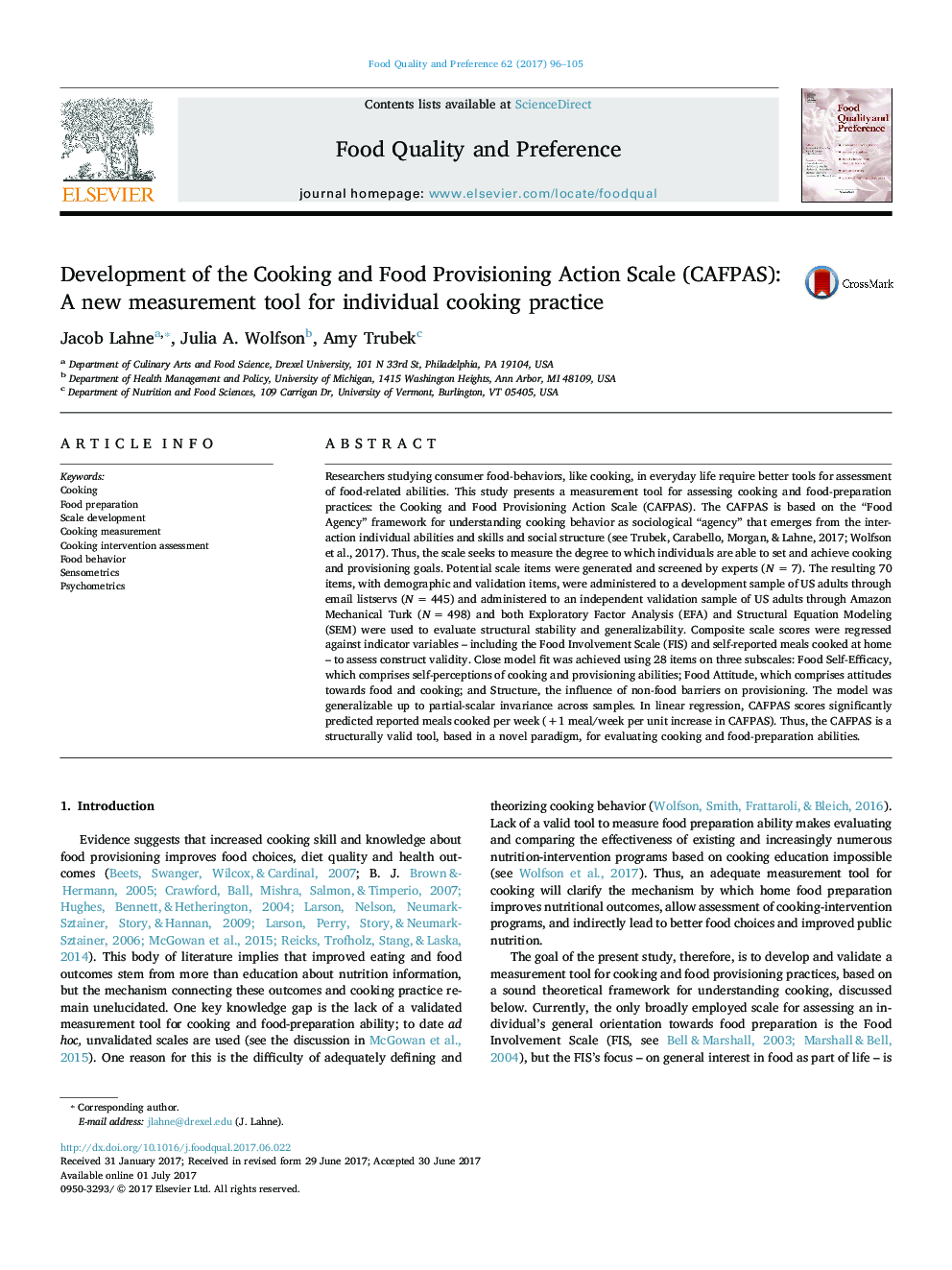| کد مقاله | کد نشریه | سال انتشار | مقاله انگلیسی | نسخه تمام متن |
|---|---|---|---|---|
| 5736015 | 1613138 | 2017 | 10 صفحه PDF | دانلود رایگان |

- A new tool is proposed: the Cooking and Food-Preparation Action Scale (CAFPAS)
- CAFPAS measures individuals' ability to set and achieve provisioning/cooking goals.
- Survey sampling and Structural Equation Modeling (SEM) validate the CAFPAS.
- The CAFPAS shows significant positive correlation with reported home cooking.
- The CAFPAS is a structurally valid scale for measuring food-related behavior.
Researchers studying consumer food-behaviors, like cooking, in everyday life require better tools for assessment of food-related abilities. This study presents a measurement tool for assessing cooking and food-preparation practices: the Cooking and Food Provisioning Action Scale (CAFPAS). The CAFPAS is based on the “Food Agency” framework for understanding cooking behavior as sociological “agency” that emerges from the interaction individual abilities and skills and social structure (see Trubek, Carabello, Morgan, & Lahne, 2017; Wolfson et al., 2017). Thus, the scale seeks to measure the degree to which individuals are able to set and achieve cooking and provisioning goals. Potential scale items were generated and screened by experts (NÂ =Â 7). The resulting 70 items, with demographic and validation items, were administered to a development sample of US adults through email listservs (NÂ =Â 445) and administered to an independent validation sample of US adults through Amazon Mechanical Turk (NÂ =Â 498) and both Exploratory Factor Analysis (EFA) and Structural Equation Modeling (SEM) were used to evaluate structural stability and generalizability. Composite scale scores were regressed against indicator variables - including the Food Involvement Scale (FIS) and self-reported meals cooked at home - to assess construct validity. Close model fit was achieved using 28 items on three subscales: Food Self-Efficacy, which comprises self-perceptions of cooking and provisioning abilities; Food Attitude, which comprises attitudes towards food and cooking; and Structure, the influence of non-food barriers on provisioning. The model was generalizable up to partial-scalar invariance across samples. In linear regression, CAFPAS scores significantly predicted reported meals cooked per week (+1 meal/week per unit increase in CAFPAS). Thus, the CAFPAS is a structurally valid tool, based in a novel paradigm, for evaluating cooking and food-preparation abilities.
Journal: Food Quality and Preference - Volume 62, December 2017, Pages 96-105